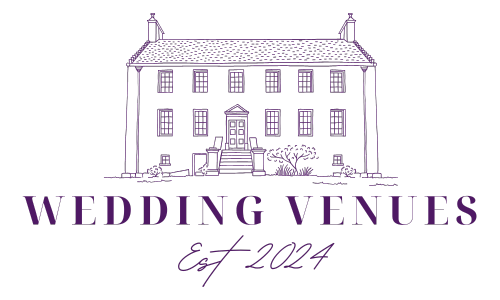Roles in a wedding | Planning a wedding is like orchestrating a symphony. Every part must work together to create a smooth and memorable event. While couples often focus on the details such as the dress, décor, or menu, it’s the people involved who truly bring the day to life. Each person has a role to play, whether it’s official or simply supportive, and together these roles ensure everything runs seamlessly from the walk down the aisle to the last dance.
In this guide, we’ll explore the essential roles in a wedding. From the couple themselves to the wedding coordinator, the officiant, the bridal party, family, and even behind-the-scenes staff, you’ll learn who does what and why each role is important. Understanding these responsibilities not only helps with planning but also allows couples to assign duties confidently, ensuring the day is stress-free and filled with joy.
The Couple: The Heart of the Celebration
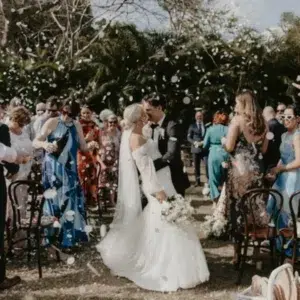 The couple is at the centre of every wedding, not only emotionally but also practically. Their role starts months or even years before the big day, as they make decisions about the theme, location, budget, and suppliers. They are the driving force behind the vision, shaping everything from the type of ceremony to the style of the reception. Planning together requires compromise and teamwork, ensuring both personalities are reflected in the celebration.
The couple is at the centre of every wedding, not only emotionally but also practically. Their role starts months or even years before the big day, as they make decisions about the theme, location, budget, and suppliers. They are the driving force behind the vision, shaping everything from the type of ceremony to the style of the reception. Planning together requires compromise and teamwork, ensuring both personalities are reflected in the celebration.
On the wedding day, their main responsibility is to be present, calm, and ready to enjoy themselves. They should not be worrying about timelines or technical details. This is why many couples rely on a planner or coordinator, so they can focus on the joy of the occasion. Their biggest task is to soak up the love, exchange vows, and share this milestone with their friends and family.
![]() Define the overall style, theme, and tone of the wedding
Define the overall style, theme, and tone of the wedding
![]() Make key decisions on budget, venue, and suppliers
Make key decisions on budget, venue, and suppliers
![]() Take part in rehearsals, fittings, and pre-wedding events
Take part in rehearsals, fittings, and pre-wedding events
![]() Exchange vows, rings, and participate in traditions
Exchange vows, rings, and participate in traditions
![]() Focus on being present and celebrating with guests
Focus on being present and celebrating with guests
The Wedding Planner or Coordinator
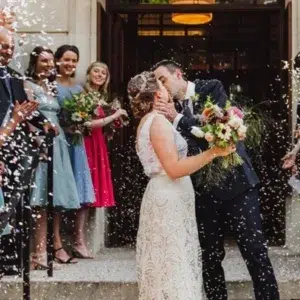 A wedding planner or coordinator acts as the backbone of the entire celebration. While couples may bring the vision, the planner translates that vision into reality with precision and organisation. Their involvement can begin as early as the engagement, with services ranging from sourcing venues and negotiating contracts to managing budgets and timelines. For couples who prefer to do the planning themselves, a wedding coordinator may step in later, often just a few weeks before, to oversee the final details and manage the day itself.
A wedding planner or coordinator acts as the backbone of the entire celebration. While couples may bring the vision, the planner translates that vision into reality with precision and organisation. Their involvement can begin as early as the engagement, with services ranging from sourcing venues and negotiating contracts to managing budgets and timelines. For couples who prefer to do the planning themselves, a wedding coordinator may step in later, often just a few weeks before, to oversee the final details and manage the day itself.
Their expertise lies in problem-solving and staying calm under pressure. A planner anticipates challenges before they arise, ensuring that everything runs to schedule. On the day, they orchestrate suppliers, oversee set-up, and discreetly handle any issues so the couple and their guests remain blissfully unaware. They are the quiet force that allows couples to relax and enjoy their wedding without stress.
![]() Manage the planning process from start to finish
Manage the planning process from start to finish
![]() Source, negotiate, and manage reliable suppliers
Source, negotiate, and manage reliable suppliers
![]() Create and oversee the wedding day timeline
Create and oversee the wedding day timeline
![]() Handle logistics and solve unexpected issues
Handle logistics and solve unexpected issues
![]() Free the couple to enjoy the day without stress
Free the couple to enjoy the day without stress
The Officiant
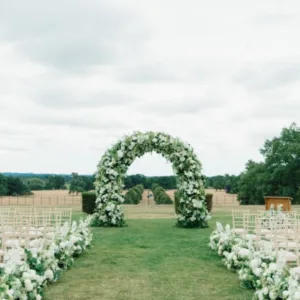 The officiant plays one of the most significant roles in a wedding, as they are responsible for conducting the ceremony and uniting the couple. Whether religious, civil, or symbolic, their role provides structure, meaning, and legality to the event. For many couples, the officiant also adds a personal touch by helping to craft vows or suggesting readings. This creates a ceremony that feels both authentic and unique.
The officiant plays one of the most significant roles in a wedding, as they are responsible for conducting the ceremony and uniting the couple. Whether religious, civil, or symbolic, their role provides structure, meaning, and legality to the event. For many couples, the officiant also adds a personal touch by helping to craft vows or suggesting readings. This creates a ceremony that feels both authentic and unique.
In some cultures, the officiant represents tradition and authority, while in others, they embody personal connection and storytelling. Regardless of the setting, their role carries great responsibility, as they guide the couple and guests through the most important part of the day. A skilled officiant balances formality with warmth, creating a moment that will remain in memory for a lifetime.
![]() Lead the wedding ceremony with clarity and warmth
Lead the wedding ceremony with clarity and warmth
![]() Conduct legal formalities and document signing
Conduct legal formalities and document signing
![]() Support the couple with vows and readings
Support the couple with vows and readings
![]() Incorporate cultural, spiritual, or personal touches
Incorporate cultural, spiritual, or personal touches
![]() Provide reassurance and authority throughout the service
Provide reassurance and authority throughout the service
The Best Man
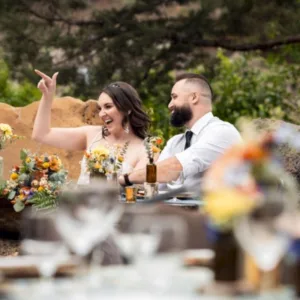 The best man is traditionally the groom’s closest ally, chosen for his loyalty, humour, and dependability. His responsibilities begin long before the wedding day, with tasks such as planning the stag party and helping the groom with attire. On the wedding day, his role is both ceremonial and supportive. He ensures the groom feels confident and calm, and often keeps hold of the rings until the crucial moment.
The best man is traditionally the groom’s closest ally, chosen for his loyalty, humour, and dependability. His responsibilities begin long before the wedding day, with tasks such as planning the stag party and helping the groom with attire. On the wedding day, his role is both ceremonial and supportive. He ensures the groom feels confident and calm, and often keeps hold of the rings until the crucial moment.
Perhaps the most anticipated part of the best man’s role is his speech. Guests look forward to a balance of humour, personal anecdotes, and heartfelt sentiments. Beyond the speech, he often works behind the scenes, helping guests, liaising with suppliers, or supporting ushers. His presence is about more than tradition, it’s about making sure the groom has a steady hand by his side.
![]() Offer emotional support to the groom throughout planning
Offer emotional support to the groom throughout planning
![]() Organise and host the stag party
Organise and host the stag party
![]() Take care of rings and other essentials
Take care of rings and other essentials
![]() Deliver a speech that entertains and moves guests
Deliver a speech that entertains and moves guests
![]() Help with guest coordination and logistics on the day
Help with guest coordination and logistics on the day
The Maid of Honour
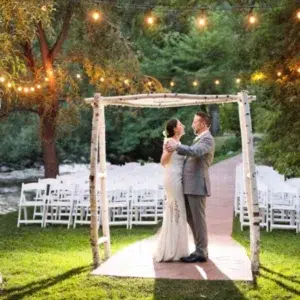 The maid of honour, sometimes called the chief bridesmaid, is the bride’s closest supporter and confidant throughout the wedding journey. She often assists with choosing the dress, coordinating bridesmaids, and planning the hen party. Her role is both practical and emotional, offering guidance and reassurance during stressful moments. On the day, she plays an essential part in ensuring the bride feels calm and cared for.
The maid of honour, sometimes called the chief bridesmaid, is the bride’s closest supporter and confidant throughout the wedding journey. She often assists with choosing the dress, coordinating bridesmaids, and planning the hen party. Her role is both practical and emotional, offering guidance and reassurance during stressful moments. On the day, she plays an essential part in ensuring the bride feels calm and cared for.
During the ceremony, she may hold the bouquet, adjust the veil, or help with the dress. At the reception, she may deliver a speech and lead the bridesmaids in their duties. Beyond these formal tasks, the maid of honour is the person the bride turns to most, whether it’s for advice, a laugh, or last-minute problem-solving. Her role blends friendship with responsibility.
![]() Assist with dress fittings and styling choices
Assist with dress fittings and styling choices
![]() Plan and lead the hen party
Plan and lead the hen party
![]() Support the bride emotionally and practically
Support the bride emotionally and practically
![]() Manage the bridesmaids and keep them organised
Manage the bridesmaids and keep them organised
![]() Deliver a thoughtful and heartfelt speech if requested
Deliver a thoughtful and heartfelt speech if requested
Bridesmaids and Groomsmen
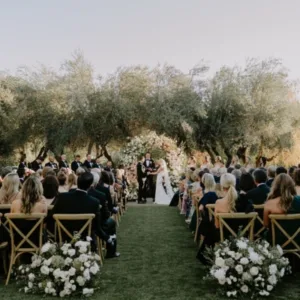 The bridesmaids and groomsmen, collectively known as the wedding party, provide essential support to the couple both before and during the wedding. Their roles go far beyond standing at the altar. They help with preparations, keep spirits high, and bring an energy of celebration. Bridesmaids may assist with tasks such as addressing invitations or making décor, while groomsmen may help with logistics and ushering.
The bridesmaids and groomsmen, collectively known as the wedding party, provide essential support to the couple both before and during the wedding. Their roles go far beyond standing at the altar. They help with preparations, keep spirits high, and bring an energy of celebration. Bridesmaids may assist with tasks such as addressing invitations or making décor, while groomsmen may help with logistics and ushering.
On the wedding day, their role is largely symbolic but still highly valuable. They represent the couple’s closest circle of friends and family, walking down the aisle, posing for photos, and creating a lively atmosphere. They also provide a bridge between the couple and guests, ensuring everyone feels included and welcomed. Their involvement reflects the importance of friendship and loyalty in the couple’s lives.
![]() Support the couple with planning and preparation tasks
Support the couple with planning and preparation tasks
![]() Take part in the procession and ceremony
Take part in the procession and ceremony
![]() Offer assistance with décor, seating, or guidance
Offer assistance with décor, seating, or guidance
![]() Join in photos and create joyful memories
Join in photos and create joyful memories
![]() Keep the atmosphere positive and celebratory throughout
Keep the atmosphere positive and celebratory throughout
Parents of the Couple
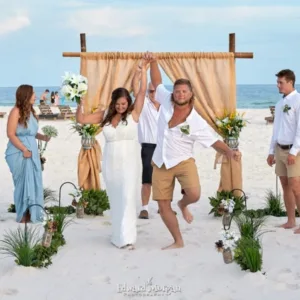 Parents have always played a central role in weddings, though their responsibilities vary depending on cultural traditions, personal circumstances, and the couple’s wishes. In many cases, parents provide practical and financial support during planning, contributing to budgets, sharing advice, or helping with supplier research. Beyond the financial side, their emotional presence is invaluable, offering reassurance during stressful planning moments and providing wisdom gained from experience.
Parents have always played a central role in weddings, though their responsibilities vary depending on cultural traditions, personal circumstances, and the couple’s wishes. In many cases, parents provide practical and financial support during planning, contributing to budgets, sharing advice, or helping with supplier research. Beyond the financial side, their emotional presence is invaluable, offering reassurance during stressful planning moments and providing wisdom gained from experience.
On the wedding day itself, parents often step into roles of honour. A father or mother may walk their child down the aisle, while others act as hosts, greeting and guiding guests. Many couples choose to include parents in speeches or symbolic rituals, recognising the role they’ve played in shaping their lives. Their presence isn’t just ceremonial; it is deeply symbolic of love, family bonds, and continuity.
![]() Offer financial or logistical support during planning
Offer financial or logistical support during planning
![]() Walk the bride or groom down the aisle
Walk the bride or groom down the aisle
![]() Welcome and host guests at the venue
Welcome and host guests at the venue
![]() Deliver speeches or take part in traditions
Deliver speeches or take part in traditions
![]() Provide emotional reassurance throughout the process
Provide emotional reassurance throughout the process
Ushers
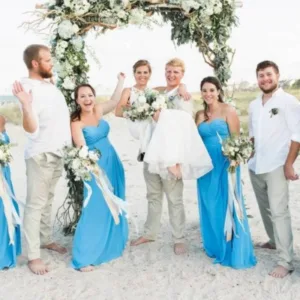 Ushers are the unsung heroes of a wedding day. While their responsibilities may not seem glamorous, their contribution is vital in ensuring the smooth flow of the ceremony and guest experience. Typically, ushers are close friends or younger family members chosen for their reliability and friendliness. Their primary duty is to help guests feel comfortable and ensure they know where to go, minimising confusion and delays.
Ushers are the unsung heroes of a wedding day. While their responsibilities may not seem glamorous, their contribution is vital in ensuring the smooth flow of the ceremony and guest experience. Typically, ushers are close friends or younger family members chosen for their reliability and friendliness. Their primary duty is to help guests feel comfortable and ensure they know where to go, minimising confusion and delays.
From directing guests to their seats to handing out programmes, ushers act as the bridge between the planning team and the attendees. They may also help with parking arrangements, guiding elderly guests, or coordinating movement between ceremony and reception. Their warm welcome sets the tone for the event, helping guests relax and enjoy themselves. Though often overlooked, ushers ensure everything runs seamlessly behind the scenes.
![]() Greet and guide guests to their seats
Greet and guide guests to their seats
![]() Distribute programmes or orders of service
Distribute programmes or orders of service
![]() Assist elderly or disabled guests with care
Assist elderly or disabled guests with care
![]() Support transitions between ceremony and reception
Support transitions between ceremony and reception
![]() Coordinate with the planner or best man for updates
Coordinate with the planner or best man for updates
Flower Girl and Page Boy
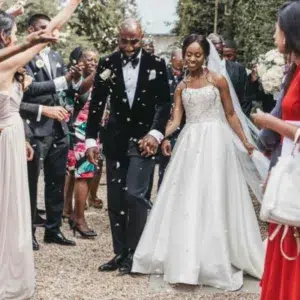 The flower girl and page boy bring a sense of innocence, charm, and light-hearted joy to the wedding. Usually young relatives or family friends, their roles are symbolic, representing purity, new beginnings, and the future. The flower girl may walk down the aisle scattering petals or carrying a small bouquet, while the page boy might carry the rings or simply accompany her. These moments often melt hearts and create lasting photographic memories.
The flower girl and page boy bring a sense of innocence, charm, and light-hearted joy to the wedding. Usually young relatives or family friends, their roles are symbolic, representing purity, new beginnings, and the future. The flower girl may walk down the aisle scattering petals or carrying a small bouquet, while the page boy might carry the rings or simply accompany her. These moments often melt hearts and create lasting photographic memories.
It’s important for couples to keep the roles age-appropriate, ensuring that children feel comfortable and not overwhelmed. Their part in the wedding should be fun rather than stressful, and a little flexibility goes a long way. While these roles may not be essential, they add a touch of tradition and sweetness that many couples treasure.
![]() Walk down the aisle ahead of the bride
Walk down the aisle ahead of the bride
![]() Scatter petals or carry flowers
Scatter petals or carry flowers
![]() Carry the rings safely (with supervision)
Carry the rings safely (with supervision)
![]() Provide delightful photo opportunities
Provide delightful photo opportunities
![]() Symbolise innocence, hope, and new beginnings
Symbolise innocence, hope, and new beginnings
Guests
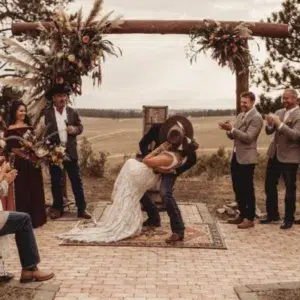 Guests may not have defined responsibilities like members of the bridal party, but their presence and participation are central to the atmosphere of a wedding. A wedding without guests is missing its energy, laughter, and support. Guests bring life to the celebration, sharing in the couple’s joy and creating the sense of community that makes the occasion special.
Guests may not have defined responsibilities like members of the bridal party, but their presence and participation are central to the atmosphere of a wedding. A wedding without guests is missing its energy, laughter, and support. Guests bring life to the celebration, sharing in the couple’s joy and creating the sense of community that makes the occasion special.
Good guest etiquette includes arriving on time, respecting dress codes, and engaging fully in both the ceremony and reception. Guests also show their support by participating in traditions, signing the guestbook, and taking to the dance floor. For the couple, guests represent the people who have shaped their lives and who will continue to be part of their journey. Their role, though less formal, is no less meaningful.
![]() Arrive promptly and follow wedding etiquette
Arrive promptly and follow wedding etiquette
![]() Celebrate and support the couple fully
Celebrate and support the couple fully
![]() Participate in speeches, traditions, and activities
Participate in speeches, traditions, and activities
![]() Sign the guestbook or audio guestbook
Sign the guestbook or audio guestbook
![]() Contribute to the joyful atmosphere of the event
Contribute to the joyful atmosphere of the event
Behind-the-Scenes Suppliers
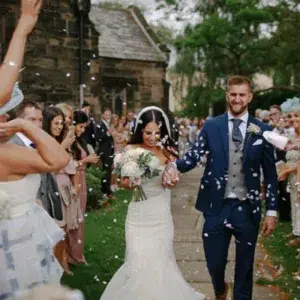 Behind every flawless wedding is a team of dedicated suppliers working tirelessly to bring the couple’s vision to life. These professionals are often hired months in advance, carefully selected for their expertise and reliability. From florists and photographers to caterers, musicians, and stylists, each plays a crucial role in shaping the experience.
Behind every flawless wedding is a team of dedicated suppliers working tirelessly to bring the couple’s vision to life. These professionals are often hired months in advance, carefully selected for their expertise and reliability. From florists and photographers to caterers, musicians, and stylists, each plays a crucial role in shaping the experience.
While couples and guests see the results — beautiful flowers, delicious meals, unforgettable photos — they rarely see the long hours of preparation and coordination involved. A great supplier team works seamlessly together, anticipating needs and responding quickly to changes. Their professionalism allows the couple to relax, knowing that the details are in expert hands. The best weddings often reflect not only a couple’s love but also the skill and dedication of those working behind the scenes.
![]() Photographers and videographers capturing memories
Photographers and videographers capturing memories
![]() Caterers providing delicious food and drinks
Caterers providing delicious food and drinks
![]() Florists designing arrangements and décor
Florists designing arrangements and décor
![]() DJs and musicians creating atmosphere and energy
DJs and musicians creating atmosphere and energy
![]() Stylists, hairdressers, and makeup artists preparing the couple
Stylists, hairdressers, and makeup artists preparing the couple
Final Thoughts
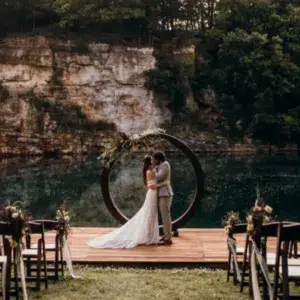 A wedding is much more than a single event; it is the result of countless moving parts and people working together in harmony. From the couple themselves to their family, friends, suppliers, and guests, every role adds something unique to the celebration.
A wedding is much more than a single event; it is the result of countless moving parts and people working together in harmony. From the couple themselves to their family, friends, suppliers, and guests, every role adds something unique to the celebration.
While some responsibilities are practical and others are symbolic, together they create the balance of structure and emotion that makes a wedding unforgettable. By understanding and appreciating these roles, couples can plan with confidence, assign duties clearly, and allow everyone involved to shine in their own way.
Most importantly, this knowledge frees the couple to step back on the day, knowing that every detail is in good hands, and focus instead on the reason behind it all: celebrating their love and commitment. Defined roles provide clarity, teamwork ensures a smooth celebration, and the mix of tradition with modern touches creates balance.
With the support of trusted suppliers and the involvement of loved ones, couples can let go of stress and enjoy the day as it should be, filled with joy, meaning, and unforgettable memories. – If you would like any further assistance please contact the Team At Wedding Venues ES. We offer a complete Wedding Planning and Wedding Coordination services from venue sourcing, to vendor sourcing, and management

